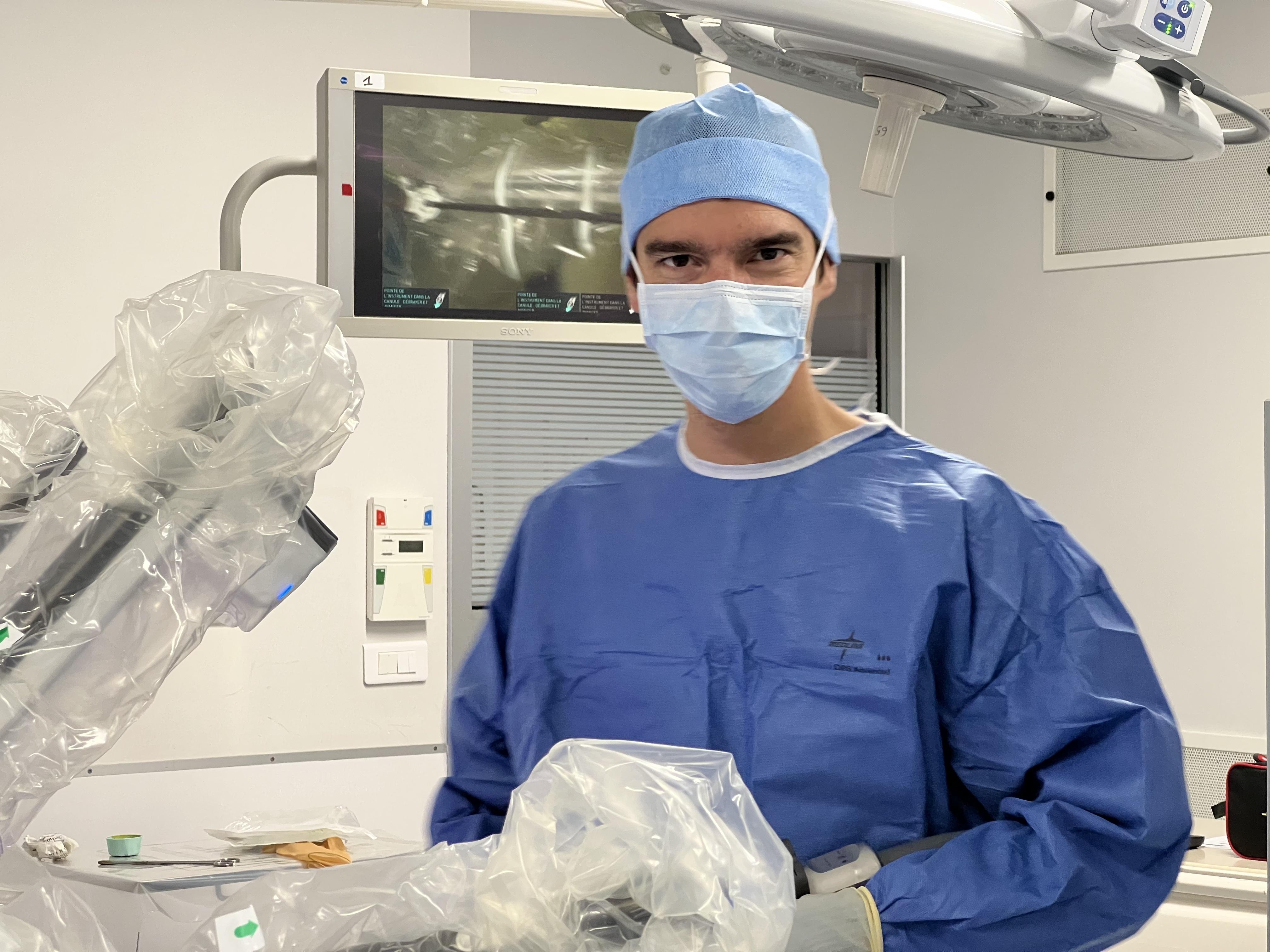Dr De Courville, digestive and bariatric surgeon at Foch hospital (Suresnes) treats people with severe obesity. Expert on obesity, which we call more morbid but severe, he tells us everything in an interview.

Why Doctor: Why is it important to talk about obesity and overweight today?
Dr. De Courville: Because it is an obvious public health problem, as recalled by thestudy published by Public Health France which shows a significant increase in overweight and obesity over the past 20 years. It is a disease that cannot be stopped and which causes many complications.
What are the consequences of these diseases on the general population?
There are some very well known ones such as type 2 diabetes, high blood pressure, sleep apnea, osteoarticular disorders. And then, there are other disorders, a little less known but which are increasingly better explored, such as certain types of cancer, or the worsening of other pathologies, such as respiratory pathologies including asthma. This also leads to infertility problems, whether in men or women. Other functional problems are concerned such as urinary incontinence. It’s truly multidisciplinary, the disease has an impact on the entire functioning of the human body.
What is the common denominator among all your patients?
Most of the time it’s an awareness. The mode of awareness can be very different depending on the individual. This could be someone who is found to have diabetes or hypertension. When there is sleep apnea, when your partner says you snore too much. And then there is, for example, a young person who realizes that it is more difficult for them to play with their children, to go and play football. The picture can be very different, but it is an awareness most often.
Among the treatments to combat obesity, there is bariatric surgery, could you explain to us what exactly it is?
Bariatric surgery is a treatment for severe obesity. Severe obesity is defined as a BMI greater than or equal to 35 kg per square meter. BMI, body mass index, is weight divided by height squared. Surgery is indicated in patients who have a BMI greater than or equal to 35 who are accompanied by a complication at least related to obesity, those that we described a little earlier.

What does it consist of?
It is an abdominal surgery of which several types exist. There is the gastric band which consists of positioning a ring around the stomach, which reduces food intake. There is sleeve gastrectomy or longitudinal gastrectomy which consists of removing two thirds of the stomach to initially reconstitute the stomach which is a pouch. When we perform a sleeve gastrectomy, we tubule the stomach, that is to say it becomes a “sleeve”, which means “handle” in English because that’s the shape it takes. This reduces its capacity and, through a hormonal phenomenon, it also reduces the appetite. Then, there are slightly more malabsorptive interventions, such as gastric bypass, which consists of making a short intestinal circuit: we will cut the stomach into two parts and immobilize a small intestinal segment which we raise to the level of the stomach. stomach to make a seam between the stomach and the intestine. Food is then less absorbed.
Why do you absolutely have to be morbidly obese to benefit from this type of treatment?
We say ‘severe’ rather than ‘morbid’… But it is indeed in this indication, with at least one associated complication, that bariatric surgery has demonstrated its effectiveness. There are new treatments that are innovative and promising, but for the moment, in the long term, we have little perspective.
Women are more affected than men, why Doctor?
Indeed, in bariatric surgery there is a male-female gradient with female over-representation in surgery. Probably because there is a little more awareness among women.
For a woman of average height, say 1 meter 65, what weight would represent an “alert”?
For example, for 1m65, you must weigh at least 95 kg. This corresponds to a BMI of 35 and if this BMI of 35 is associated with a complication of obesity, in this case, there is an indication for surgery. Obviously it is not just numbers and that surgery must be associated with a change in lifestyle, eating behavior, physical activity and that all of this must be prepared in advance with specific support.
Is there a before and after of bariatric surgery? What really changes for the patient?
Yes. There is a before which is essential, there is an obligatory follow-up of more than six months before the surgery with dietary, psychological interviews, with therapeutic education, with also nutritional interviews and then also obligatory examinations to be carried out before the surgery. And then, there are also examinations to assess the pathologies associated with obesity. And then, downstream, there is support that must be provided for life, whatever the type of surgery, because as I tell my patients, obesity is not simply a weight, it is that is to say that when you have an operation and you return to a BMI of a person who is no longer obese, in reality, you remain sick with obesity. This is something that needs to be monitored chronically. We must fight throughout our lives in association with caregivers against weight gain.
And the psychological aspect too, could you tell me about it as a digestive surgeon?
Of course, the psychological aspect is essential, particularly regarding eating disorders. It is absolutely necessary to understand the psychological factors upstream, in order to anticipate new possible forms of these eating disorders (TCA). We must also support patients in changing their self-perception because it is inevitably a radical change and therefore it can cause problems in the perception of their own body and this must absolutely be supervised in a rigorous manner on a psychological level. .
Is obesity a family issue?
We can become obese even if no one in the family is. Obesity is a disease that is multifactorial, genetics can play a role. Afterwards, purely genetic obesity is rare, very rare. This is the subject of genetic investigation and generally it is associated with phenotypes that we can identify. But obviously, people from the same family do not have the same predisposition to move towards obesity.
The only thing we can change is our lifestyle?
When we say this it is not to stigmatize, studies have proven it: a simple change in lifestyle cannot be enough. Studies which have validated bariatric surgery comparing lifestyle modification versus surgery have shown failure in almost 100% of cases of lifestyle and dietary measures. Lifestyle is the main factor that promotes obesity, but lifestyle modification is not at all sufficient to cure severe obesity.















